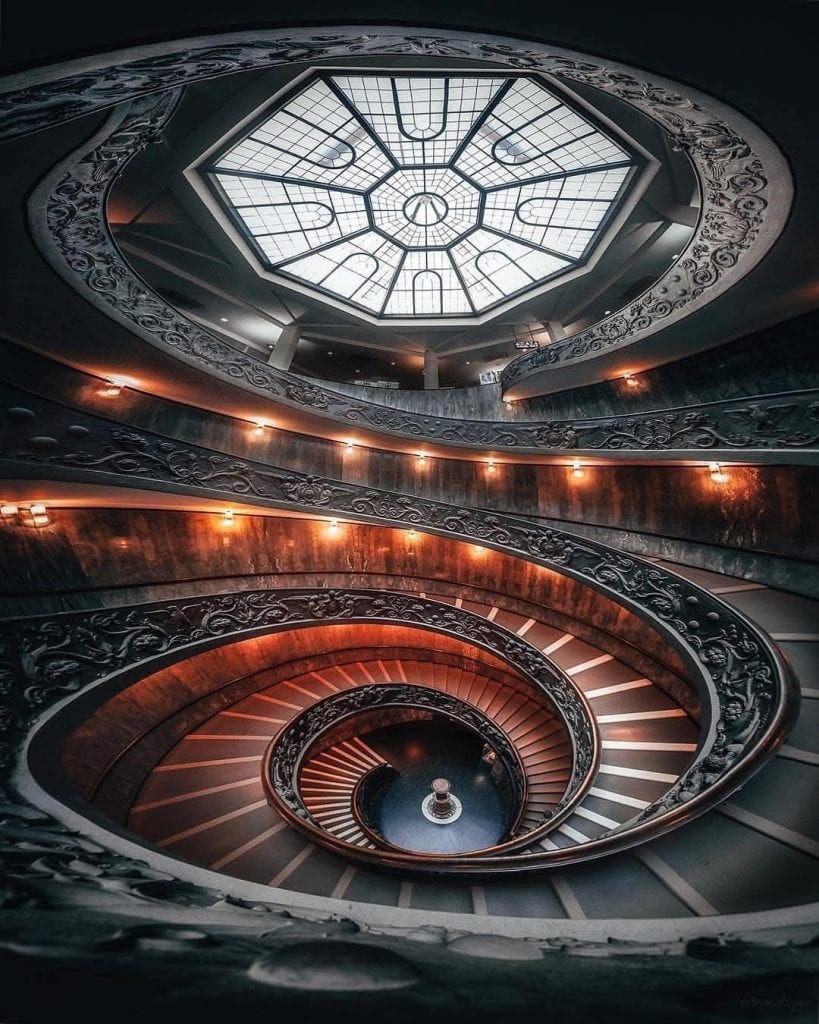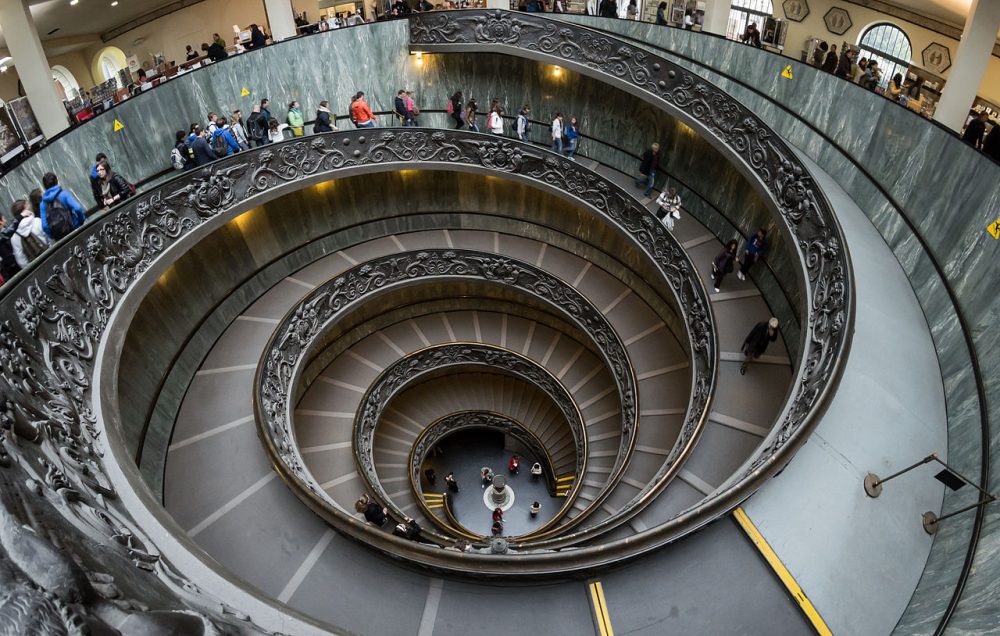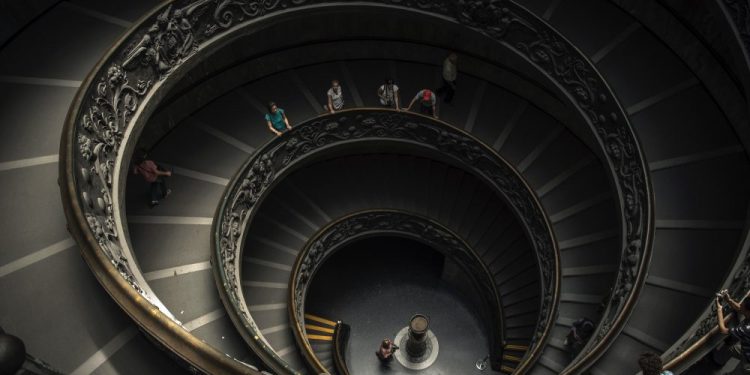The Vatican city is one of the locations in Italy that draw the largest number of tourists yearly. The heart of the Catholic Church and also the smallest sovereign state in the world, the Vatican is one of those special places in the world where the number of mysterious and secret locations hidden from the public is not inferior to the number of historical landmarks and museums.
One such location is the spectacular Bramante Staircase. It might sound surprising, but it has become one of the most visited places in the Vatican, although the small state is overfilled with grandeur palaces and museums.
1. The Bramante Staircase is actually the name of two individual staircases in the Vatican
The Bramante Staircase that is open for public visits is not original. It was built as a copy since the real Bramante Staircase is in a restricted area.
2. The original Bramante Staircase was built in 1505
The old staircase was built by Donato Bramante, perhaps the most renowned architect of his time who is behind the design of many of the Vatican’s most significant buildings. It was commissioned by Pope Julius II and constructed in 1505.
3. The second staircase was made in 1932 to serve as a tourist site

Also located in the Pio-Clementine Museum in the Vatican, the second Bramante staircase was created in homage to the original restricted one and possesses similar characteristics. However, it is significantly more decorated and modern in design.
4. Actually, neither of the staircases is a real staircase
Despite their name, both sites are presented by a pair of spiral ramps. The modern one from 1932 was made to resemble the one from 1505 in size and concept but the designer added tiny steps, while the old one is one entire ramp.
5. The original Bramante Staircase is closed to the public
The only way to visit the original staircase is through a private tour available at a certain price but with limited places and only at certain times. The modern version, however, is completely open to tourists and has become one of the most popular locations in Vatican city.
6. Both have the shape of a DNA’s double-helix
While it is impossible that Donato Bramante had any knowledge or idea that our DNA is shaped like a double-helix, he achieved these shapes centuries before science found the double-helix. Logically, the second staircase from the 20th century was also designed identically.
7. The original staircase connected the Papal apartments to the streets of the Vatican
Go a few centuries back, and the Bramante Staircase would have been the entrance point for the residential part of the Belvedere Palace. It is understandable why the staircase has always been closed to the public.
8. It was built to accommodate horses and mules
Here is the reason why the Bramante staircase consists of two spiral ramps and not real stairs – it was built to accommodate horses and mules. In other words, if anything heavy like furniture were required in the palace, it would be carried through the staircase to the higher levels.
9. The modern staircase has a beautiful glass ceiling to allow natural light
While the one from 1505 had regular windows to allow sunlight during the day, the modern Bramante staircase from 1932 has solid walls without any windows. However, unlike the original, it has a glass ceiling that provides the necessary natural light during the day.
10. Curiously enough, visitors are allowed to walk only on one of the two spiraled ramps

While each of the Bramante Staircases includes two spiraling ramps, tourists can walk only on one when visiting the modern site. I was unable to find a proper reason for this, but many tourists have noted it, and also, the second ramp is always inaccessible.
Have something to add? Visit Curiosmos on Facebook. Join the discussion in our mobile Telegram group. Also, follow us on Google News










